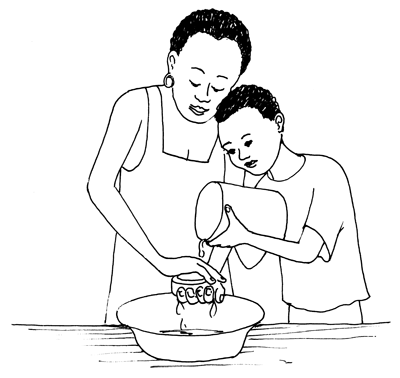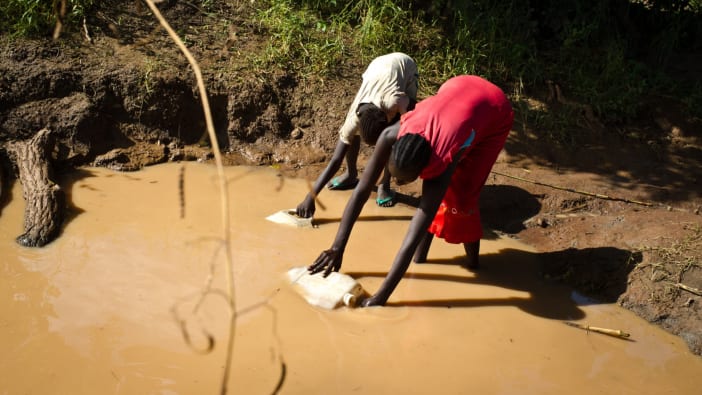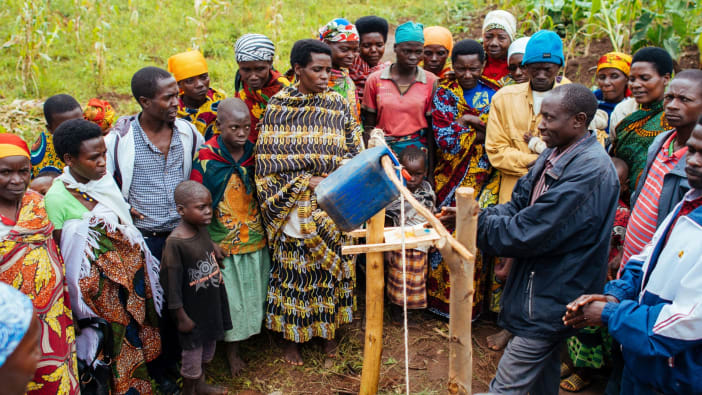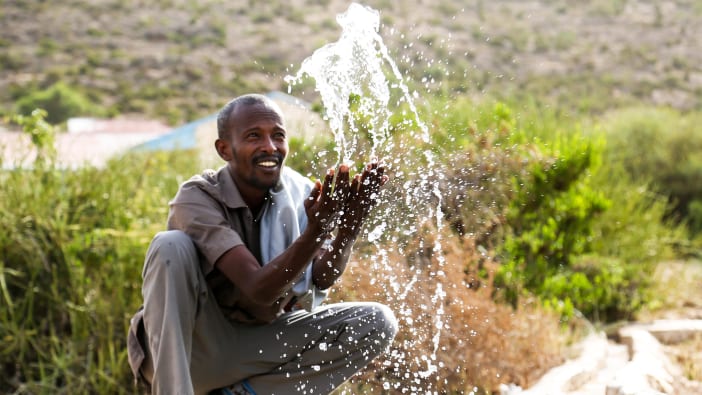Most of the time when we look at our hands, they seem clean. However, they can look clean but still be covered by many thousands of tiny microbes. Touching faeces, either from cleaning ourselves after defecating, or cleaning up a young child or baby, will always cause our hands to become covered in microbes from the faeces. Touching the door of the latrine, or working in soil which may contain faeces, will also make our hands dirty.
Careful hand washing with soap and water will remove these microbes. This can be done with very little water. If soap is not available, ash, tree bark or soil can be used instead. It is really important to always wash our hands well after touching faeces, before preparing or handling food, and after handling raw meat. This simple action is the most important thing we can do to reduce the risk of diarrhoea and many other diseases. It is better not to wash in a shared bowl of water, but instead to either scoop out the water as we wash or have someone pour fresh water over our hands.
Keeping fingernails short and clean will also keep our hands cleaner.
Discussion
- How could we explain the idea of microbes? Is this a term that people understand? Is there a better word we could use?
- How can we know if our hands are covered with microbes?
- Most cultures have very good ways of ensuring that hands are kept clean. What practices do we use in our own culture? What could stop these practices from being used?
- How can we encourage young children to wash their hands after using the latrine? How can we encourage adults to do this too?
- Can we think up a simple role-play to show the importance of washing hands?
- Although we may all wash our hands, we can often improve the way we wash them. Medical staff are often trained to wash hands very well. Discuss how people usually wash hands here. How could this be improved?
- Where would be good places to demonstrate the best way to wash hands?










